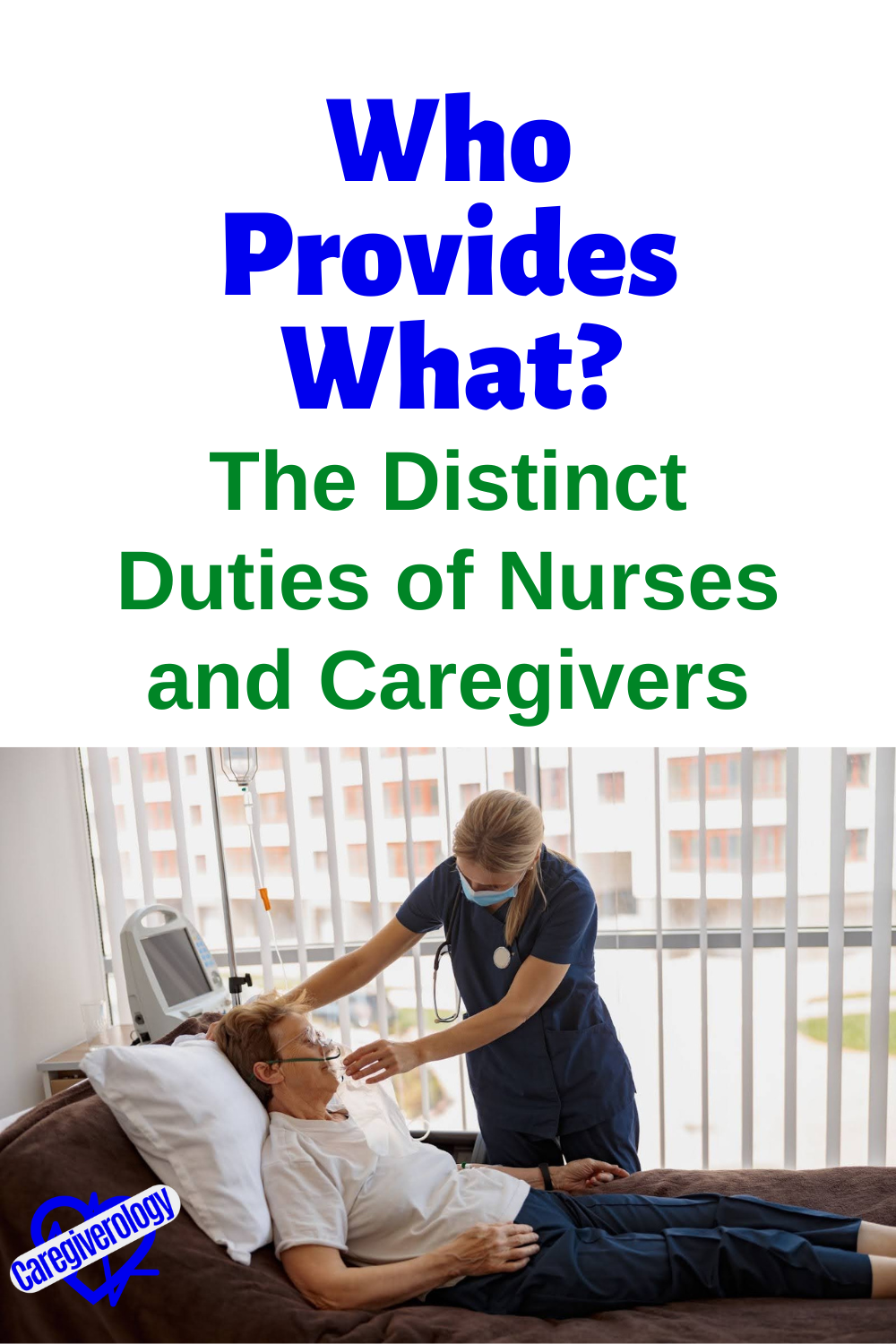Who Provides What? The Distinct Duties of Nurses and Caregivers

When it comes to healthcare, the roles of nurses and caregivers are often misunderstood. While both are essential in providing support and care, their responsibilities, training, and the level of care they provide differ significantly. Whether you're considering a career in healthcare or looking for the right care for a loved one, understanding these differences can help you make informed decisions.
Nurses vs. Caregivers: What’s the Difference?
Nurses and caregivers both work with individuals who need assistance, but their jobs vary in complexity and scope. Let's break it down:
What Do Nurses Do?
Nurses are licensed healthcare professionals trained to provide medical care. They work in hospitals, clinics, nursing homes, and even private homes, handling tasks that require medical expertise.
Depending on their education and specialization, nurses can have different titles, such as:
- Licensed Practical Nurse (LPN)/Licensed Vocational Nurse (LVN) – Handles basic patient care under supervision.
- Registered Nurse (RN) – Holds a nursing degree, can administer medications, manage patient care, and work with doctors.
- Advanced Practice Registered Nurse (APRN) – Includes nurse practitioners who can diagnose and treat patients with more independence.
What Do Caregivers Do?
Caregivers, also known as personal care aides or home health aides, provide non-medical support to people who need help with daily activities. They often work in private homes, assisted living facilities, and nursing homes.
Caregivers typically assist with:
- Bathing, dressing, and grooming
- Meal preparation and feeding
- Mobility and transportation
- Light housekeeping
- Companionship and emotional support
- Medication reminders (but not administration)
Unlike nurses, caregivers do not need formal medical training, although some complete certification programs to gain basic healthcare skills.
Key Differences Between Nurses and Caregivers
1. Education and Training
- Nurses complete formal medical training through diploma, associate, or bachelor’s degree programs. They must pass licensing exams to practice.
- Caregivers generally do not require formal training, though some may become Certified Nursing Assistants (CNAs) or Home Health Aides (HHAs).
2. Medical vs. Non-Medical Care
- Nurses provide medical care, administer treatments, and assist in managing health conditions.
- Caregivers focus on personal care, household tasks, and emotional support.
3. Work Environments
- Nurses work in hospitals, clinics, nursing homes, and home healthcare settings.
- Caregivers mainly work in private homes and assisted living facilities.
4. Level of Responsibility
- Nurses make medical decisions, collaborate with doctors, and monitor patient health.
- Caregivers follow care plans under supervision, providing essential daily support.
Where Nurses and Caregivers Overlap
Despite their differences, nurses and caregivers often work together. For example, in home healthcare settings, nurses handle medical needs while caregivers assist with daily living tasks.
Some caregivers choose to advance their careers by enrolling in online ABSN programs (Accelerated Bachelor of Science in Nursing) to become registered nurses. These programs allow individuals with non-nursing degrees to transition quickly into nursing roles.
Do You Need a Nurse or a Caregiver?
If you're unsure whether you or a loved one needs a nurse or a caregiver, consider the level of care required:
- Choose a Nurse If: You need medical care, medication administration, wound care, or disease management.
- Choose a Caregiver If: You need assistance with daily tasks, companionship, or mobility support.
Both nurses and caregivers play vital roles in healthcare, but their responsibilities differ. Nurses provide medical care, while caregivers focus on daily living support. Understanding these distinctions can help you choose the right care for yourself or a loved one. If you're interested in a healthcare career, knowing the difference can also guide your decision on the best path forward.
Guest Articles Written for Caregiverology
From Who Provides What? to Home
Recent Articles
-
Common Truck Crash Injuries and Legal Remedies - Caregiverology
Jul 19, 25 10:49 AM
Known for its sun-drenched beaches, vibrant arts scene, and bustling maritime industry, Fort Lauderdale is a city that sees heavy traffic both on its roads and at its busy port. Unfortunately, with th… -
Why Expert Legal Help Matters After Serious Injury - Caregiverology
Jul 19, 25 10:35 AM
In Houston, over 67,600 car crashes occurred in 2023, resulting in 290 fatalities and 1,612 serious injuries. That’s roughly 185 accidents every day. -
How Life Care Planners Support Injury Recovery - Caregiverology
Jul 19, 25 10:18 AM
In Los Angeles, life care planners play a vital role in supporting injury recovery, especially for individuals facing catastrophic injuries such as traumatic brain injuries or spinal cord damage.





New! Comments
Have something to say about what you just read? Leave a comment in the box below.